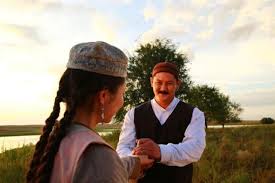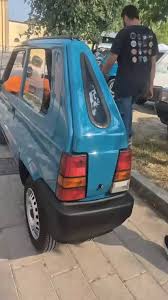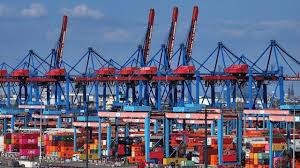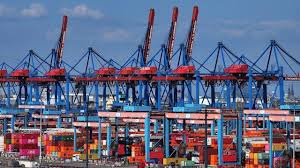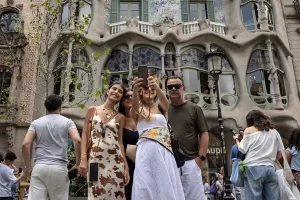Red lines remain between US and Russia
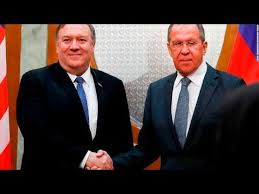
Sochi: Mike Pompeo was clearly looking for a reboot with Russia when he arrived in the southern resort city of Sochi.
But in talks that touched on nearly every flashpoint in US-Russian relations, the geopolitical differences between Moscow and Washington remained as stark as ever.
The US Secretary of State met Russian officials on Tuesday at a sanatorium called “Rus”, a mansion of marble lavish with fountains and palm trees located some 10 minutes away from Russian President Vladimir Putin’s own summer residence.
“I am here today because President Trump is committed to improving this relationship,” he told Russian Foreign Minister Sergey Lavrov ahead of a closed-door meeting in the resort city.
It was a friendly opening that seemed to hint at a thaw after months of tensions. Speaking at a press conference after the talks, Lavrov also suggested that relations were warming, and expressed relief that the Mueller report on Russian election meddling had concluded.
“We’ve agreed to restore our channels of communications; they were frozen, not in the least because of the wave of baseless accusations against us regarding the attempts to influence the outcome of American elections and the presence of some collusion of highest members of the US administration,” he said.
But while Pompeo said he had raised the issue of Russian “interference in our domestic affairs” in his meeting with Lavrov, his Russian counterpart rather icily dismissed the issue of Russian interference in the 2016 election, calling it “absolutely fake.”
On many other matters of substance, the US and Russia remained at odds. Pompeo said the Trump administration has spoken with Russia and has “made clear” that Washington wants Russia to cease support for the regime of embattled Venezuelan President Nicolas Maduro.
In turn, Lavrov gave a brief lecture to the assembled press in Sochi about America’s record on attempted regime change around the world.
The two top diplomats also did not agree on the Ukraine crisis: Pompeo said he called on Russia to release Ukrainian sailors that were detained by Russia in November 2018 and to reach out to Ukraine’s new president to break the “stalemate” over Russia’s conflict with Ukraine.
He also reasserted that the Trump administration does not recognize Russia’s annexation of the Black Sea peninsula of Crimea in 2014 — something the Russian government insists is no longer open for discussion.
Related Article: Pompeo warns Russia about election interference as he seeks more ‘successful’ relationship
Pompeo had flown to Sochi today after a surprise detour to Brussels, where he had tried to persuade European leaders to stand with Washington in an escalating confrontation with Iran.
It was his second Iran-related change of plans in a week. After the meeting, he said he and Lavrov “spoke a bit” about the situation in the Middle East, particularly Iran.
“I made clear that the United States will continue to apply pressure to the regime in Tehran until its leadership is prepared to return to the ranks of responsible nations that do not threaten their neighbors and do not spread instability or terror,” he said, adding, “We fundamentally do not seek a war with Iran.”
The tone of US-Russia rhetoric has shifted perceptively in over the past month. During a failed April 30 coup attempt in Venezuela, Pompeo and Lavrov had a testy phone call, which the Russian Minister later dismissed with a snarky line: “I think Mike Pompeo called me just to then publicly say he did.”
Only a week later, Lavrov and Pompeo had a one-hour sit-down on the sidelines of Arctic Council summit in Finland. Both diplomats seemed more positive when talking about the results, which Lavrov called a “pretty significant step forward” and Pompeo — “a desire to begin to try and find paths where we can make real progress.”
The reason for this micro-thaw? The best explanation may be the recent 90-minute phone call between Putin and Trump—the first in months. As Lavrov said Tuesday in his opening remarks, during that conversation both presidents “reconfirmed” their intention to “take the US-Russia relation out of their current sad state.”
Nevertheless, days before the Sochi meeting, both Trump and Putin took care to show their swagger. Trump set the stage for Pompeo’s first diplomatic trip to Russia by saying: “I think the message is that there’s never been anybody that’s been so tough on Russia.” Meanwhile, the Kremlin released video of Putin’s presidential plane landing at a weapons testing center, escorted by six fighter jets.
And before this week’s events, the Russian president had spent the weekend in Sochi playing hockey and carved out time to receive China’s Foreign Minister Wang Yi on Monday, even as the US finds itself in an escalating trade war with China.
The question now is how Trump and Putin will take this forward. The G20 summit next month in Japan may present another opening for dialogue. Trump has said he will meet Putin on the sidelines, and Lavrov, asked about the possibility of a new one-on-one, said, “If this offer is going to be submitted officially we will of course respond positively”
The high-level diplomatic contacts between the US and Russia has raised expectations in the Russia’s state-run media of the possibility of a real reset.
“We are on the verge of a major turnaround with the USA. Buckle up,” Evgeny Popov, host of a major Russian TV news show, tweeted ahead of the Sochi meeting.

